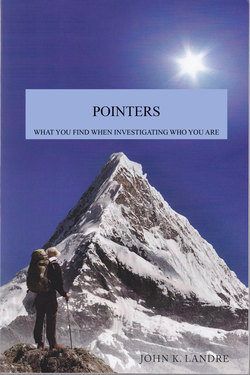Читать книгу Pointers - John K. Landre - Страница 8
На сайте Литреса книга снята с продажи.
OTHERNESS
ОглавлениеPeople in higher phases of consciousness are threatening to those in lower ones. A person in a lower phase considers somebody in a higher phase different and difficult to understand. Each time we enter a higher phase of consciousness, we become comfortable with a larger area of personal freedom.
In the other direction there is no problem. In any phase higher than the first one, a person can understand the needs of people in the previous one. But future needs, the needs that come to the fore at a later stage of development, still cause discomfort.
In the first, instinctive phase of consciousness people depend for their sense of security on the leader of the group they belong to. Their comfort is dependent on their trust in the single, often iron-fisted dictator who, for them, runs the show. This is true for both social and religious groups, even for families. To instead delegate their trust to the laws that govern a second, emotional phase society, makes instinctive people feeling highly insecure. Those who advocate doing so provoke anxiety. For people in the first phase of consciousness the rule of law cannot fulfill the need for security that only the dictator can provide.
Those in the emotional, second phase of consciousness find security in the institutions they belong to. Again, this is true both for a secular society and for the church. Rules, rather than the group’s leader, now decide what is good and bad. Second phase people have personally developed far enough to be able to do without the personal leadership of a strong leader. But for them to feel secure there have to be strong institutions. To weaken those institutions to make room for creative, rational, and individual norms, as third phase people like to do, is threatening. Advocates of personal freedom provoke anxiety in second phase people because of their need for enforced common institutional standards.
People in the third, rational phase of consciousness feel secure because they have learned to judge for themselves. Their personal development has advanced enough to no longer need a strong set of externally provided standards. In fact, they feel hemmed in by a second phase society or religion. People in the third, rational phase of consciousness feel secure because of their trust in their own capability to reason about objective facts. Advocating letting go of this security in rationality and replace it with spontaneity, as intuitive people of the fourth phase of consciousness do, is to them irresponsible and immoral. Weakening the power of objective reason to them is threatening.
Only for people in the intuitive, fourth phase of consciousness does it become possible to accept others as they are. Then everyone’s needs are understood because fourth phase people realize that they have all possible needs themselves. But until entering fourth phase consciousness people remain basically hostile toward the “otherness” of people in higher phases of development. Convincing people about the desirability of higher phases of consciousness than their own, is difficult.
